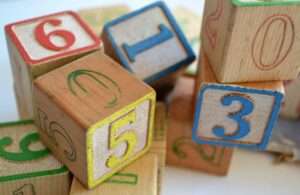
Conjugating German verbs whose verb stem end with t, d, z, ss, ß, s or x
You’ve already learned how to conjugate regular and irregular German verbs. However, even among the German verbs with regular conjugation, there are some verbs for

You’ve already learned how to conjugate regular and irregular German verbs. However, even among the German verbs with regular conjugation, there are some verbs for

One small but important word for everyday life in every language is the word “or” (“oder“). This lesson shows you how and when to use

In German, some nouns that describe humans and animals have both masculine and feminine versions. For most of those nouns, the masculine version is considered

Are you eager to travel to Germany and meet people from different cultures or of different descents (‘Herkunft‘)? Then get ready to learn how to

In Germany, part of getting to know a person is enquiring about their age (‘Alter‘). In many other cultures, one’s age is considered personal, and
Think Languages LLC
1309 Coffeen Ave, Suite 1200, Sheridan WY, USA, 82801
+1 917 9937880